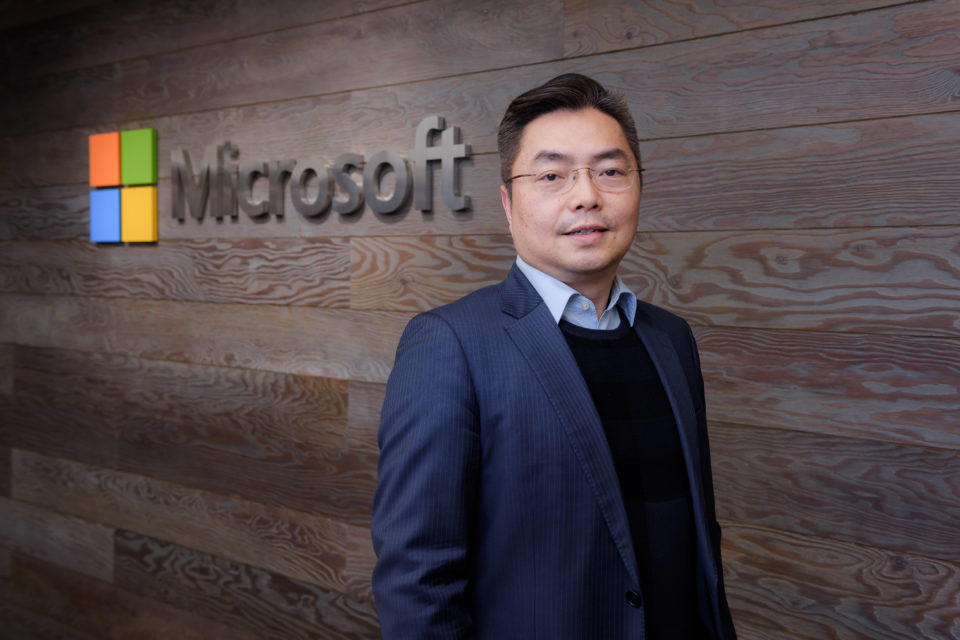By Vincent Shih, Assistant General Counsel, Microsoft Taiwan. This article was originally posted on LinkedIn.
Even though we are only halfway through the year, undoubtedly 2020 will be known as the year that COVID-19 disrupted the whole world. As a father of three kids, it has made me think about what sort of future the next generation will inherit from us. One thing is sure, we want our children to live safely and securely, not just in the physical world, but also digitally.
In 2008 Microsoft established the Digital Crimes Unit (DCU) — a group made up of cybersecurity experts, legal analysts, and engineers that support law enforcement in the fight against cybercrime. We are partly tasked with responding to government policies and coordinating with public organizations, including local law enforcement agencies. A large part of that work is spent building partnerships between public and private sectors to help safeguard online activity from criminal behavior.
It is an ever-growing challenge. Technology is speeding ahead, and we are increasingly sharing our lives online. This is creating more opportunities for cybercriminals. Globally, it is estimated that every second, 12 people become victims of cybercrime. So, we have to be always vigilant and ready to act when threats emerge.
Working with law enforcement
We saw an example of this last year in Taiwan. In cooperation with Taiwan’s Ministry of Justice Investigation Bureau (MJIB), the Taiwan DCU detected and helped to bust a major botnet operation. A DCU analyst in my team spotted something out of the ordinary one day at work. A suspicious IP address in northern Taiwan was sending out as much as one terabyte of malicious content a week. The DCU team quickly alerted and briefed MJIB on this activity. MJIB agents tracked down the illegal VPN IP quickly and discovered hidden accounts behind the illegal VPN. They sprang into action and stopped it from spewing out more malware before more damage was done.
This case in Taiwan shows how partnerships with law enforcement can make real progress in the fight against cybercrime. But there is no room for complacency.
Now new threats are rising out of the disruption and uncertainty generated by COVID-19. Interpol and other law enforcement agencies worldwide are reporting a spike in cybercrime. Since the pandemic began, hackers have ramped up phishing and ransomware attacks by fivefold, according to some estimates. People are stressed and distracted by the constant drumbeat of news and social media posts. In this environment of heightened pressure, employees are more likely to drop their guard and click on a link or headline designed to grab their attention. This means almost endless opportunities for cybercriminals to exploit vulnerabilities.
A world that’s increasingly connected has made the DCU, and organizations like it, more important than ever. Technology is developing at an unforeseen pace, and we have to prepare for the future now.
Defending a fair and ethical internet
In my view, as digital transformation occurs, our work in fighting cybercrime alongside law enforcement represents the last line of defense for a fair and ethical internet. We are simultaneously helping to build the foundations of a tech-friendly society while partnering with law enforcement to fight crime on the internet.
During this time of digital transformation, Microsoft’s Corporate, External, and Legal Affairs (CELA) team worldwide is defending law and order to help ensure that everyone can access technology regardless of nationality or income level.
Like the butterfly effect, the decisions we make today will affect the lives of our children tomorrow. That’s why moments like these are crucial, and we have to consider our decisions and their impact.
We at Microsoft recognize our responsibility to ensure that technologies are used in the right way to build and sustain trust. We also understand and value partnership, learning from each other, and being transparent.
Leveraging trusted technology
But most importantly, we are remaining true to commitments we have made to people, businesses, and society. That’s a big part of Microsoft’s mission – leveraging trusted technology to empower every person and every organization on the planet to achieve more.
For me, it is a duty that goes beyond my responsibilities as the Assistant General Counsel for Microsoft based in Taiwan. It is a parent’s fight to make cyberspace a safe place for my children both now and in the years to come.
Vincent Shih is Assistant General Counsel of Microsoft and GM of Microsoft Taiwan CELA. He served as the Vice-Chair of the American Chamber of Commerce in Taipei, and currently as the Chairman of Taiwan Berkeley Law Alumni, LESCT and Director of several key industry associations, as well as assistant professor at Soochow University.





